Każdego roku, w poniedziałek wielkanocny, w Ostropie* odbywa się procesja konna. Zwyczaj ten sięga co najmniej XVII wieku i jest praktykowany już tylko w kilku miejscach na Górnym Śląsku. Niezależnie od pogody, uczestnicy zbierają się o godzinie 13:00 przed kościołem, po czym objeżdżają należące do parafii pola, modląc się o dobre zbiory. Śląska nazwa zwyczaju to Osterritt lub rajtowanie. Co ciekawe, w w pierwszej trójce jest zawsze trzech kawalerów, z których dwóch ma skrzyżowane na piersiach wieńce wykonane z bukszpanu i białych, bibułowych kwiatów, a trzeci - w środku - krzyż procesyjny. Procesja kończy się krótkim nabożeństwem, po którym jeźdźcy, którzy są kawalerami lub pannami rzucają swoje wieńce na krzyż misyjny. Podobno ten (lub ta), którego wieniec zawiśnie na krzyżu, jeszcze w tym samym roku pozna swojego przyszłego małżonka. Dawniej w procesji brali udział gospodarze, którzy posiadali konie. Obecnie konie są wypożyczane na tę uroczystość, a ponadto biorą w niej udział również chętni spoza Ostropy. Zdjęcia pochodzą z 2007 roku.
*Ostropa - od 1975 roku dzielnica Gliwic, dawniej samodzielna wieś.
Every year, on Easter Monday, a horse procession takes place in Ostropa*. This custom dates back to at least the 17th century and is only practiced in a few places in Upper Silesia. Regardless of the weather, participants gather at 1:00 p.m. in front of the church, and then ride around the fields belonging to the parish, praying for a good harvest. The Silesian name for the custom is Osterritt or rajtowanie. Interestingly, the first three always include three bachelors, two of whom have wreaths made of boxwood and white tissue paper flowers crossed on their chests, and the third - in the middle - a processional cross. The procession ends with a short service at 5:00 p.m., after which the riders, who are bachelors or maidens, throw their wreaths on the missionary cross. Supposedly, the one (or the one) whose wreath hangs on the cross will meet his or her future husband or wife the same year. In the past, farmers who owned horses took part in the procession. Currently, horses are borrowed for this ceremony, and people from outside Ostropa also participate. The photos are from 2007.
*Ostropa - since 1975 a district of Gliwice, Poland, formerly an independent village.
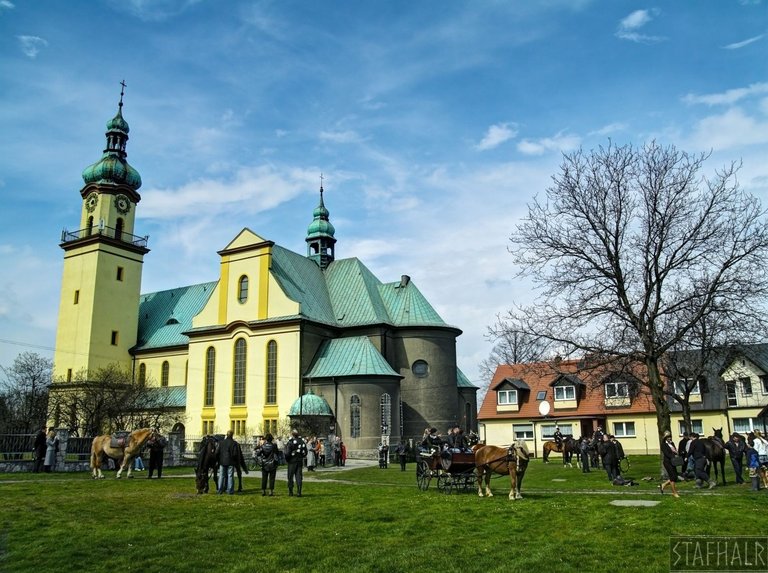
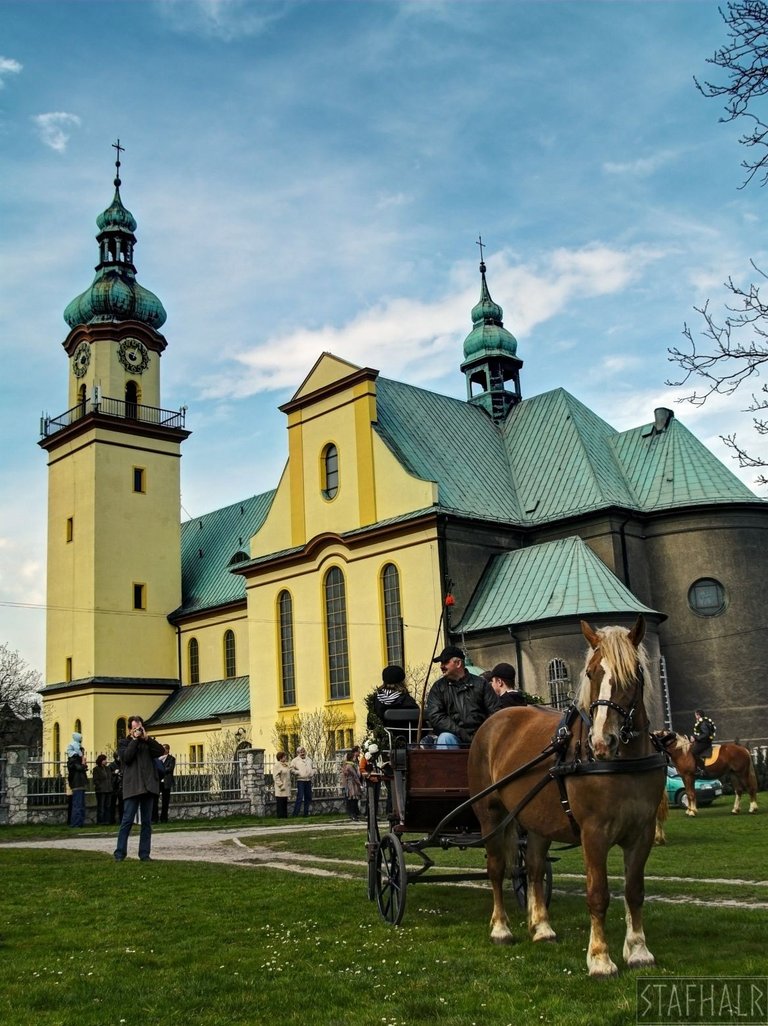
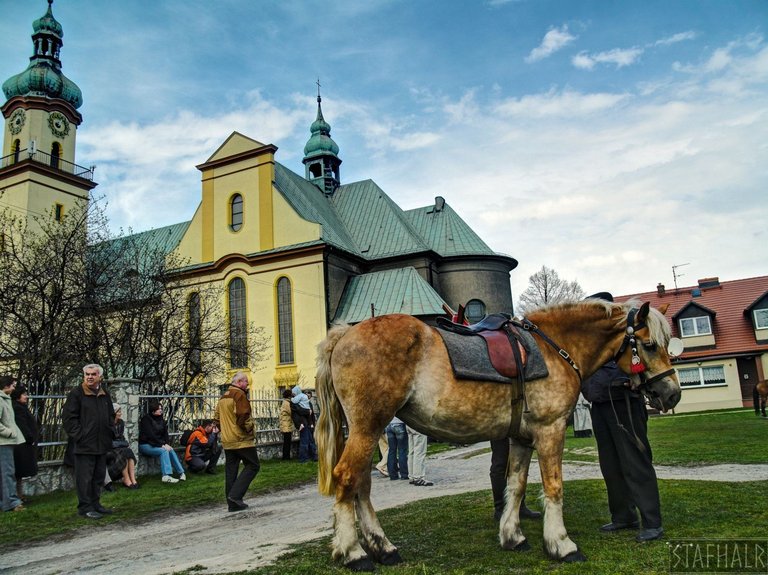
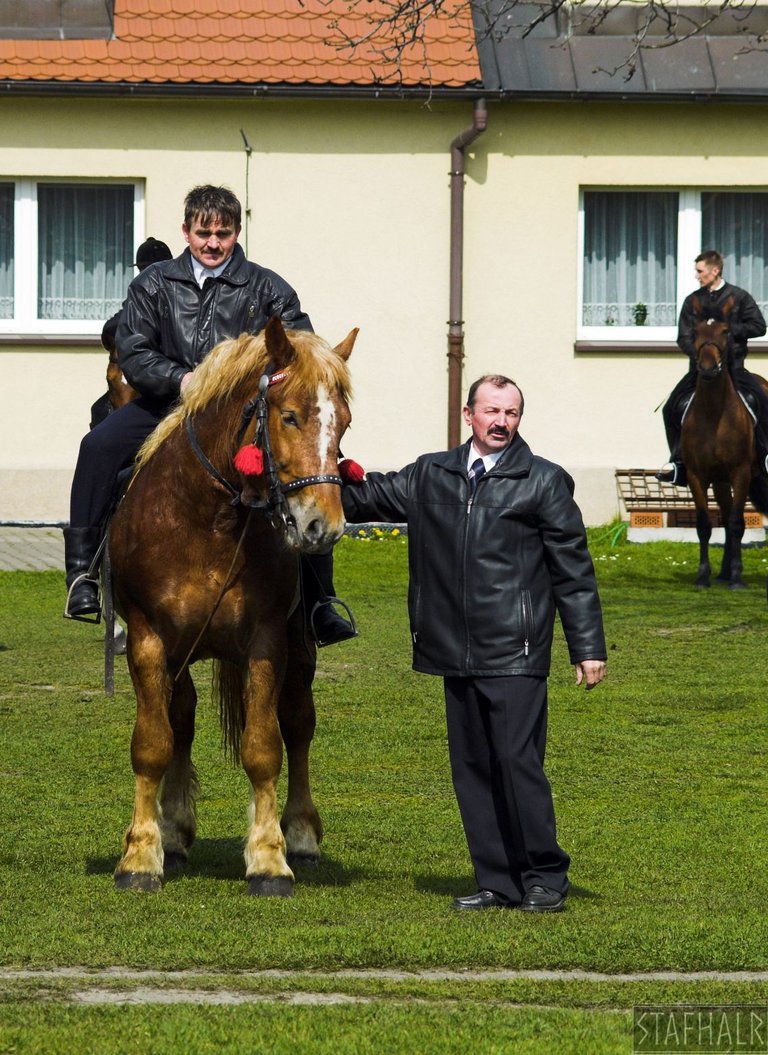
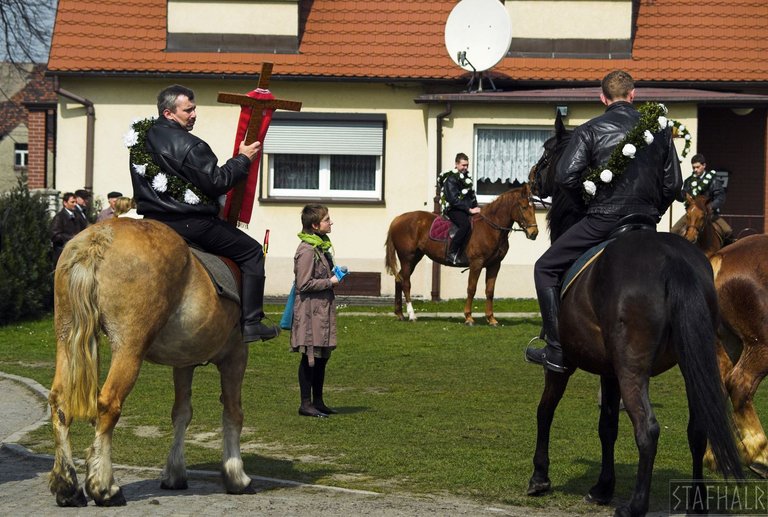
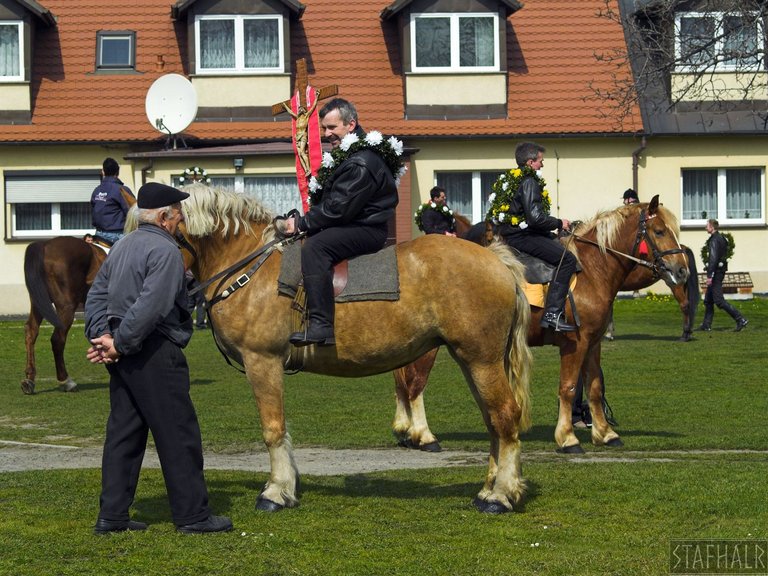
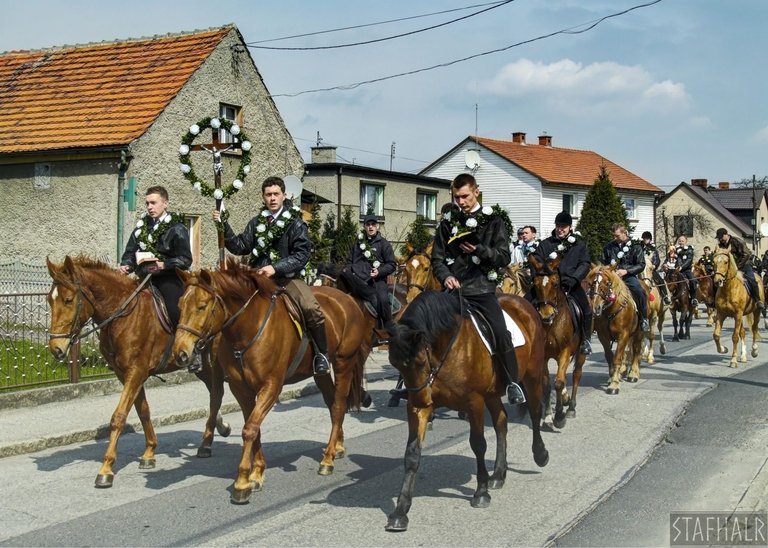
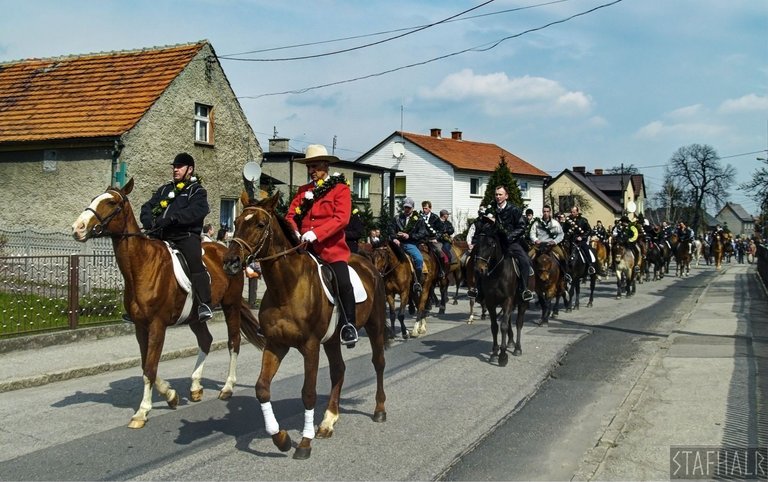
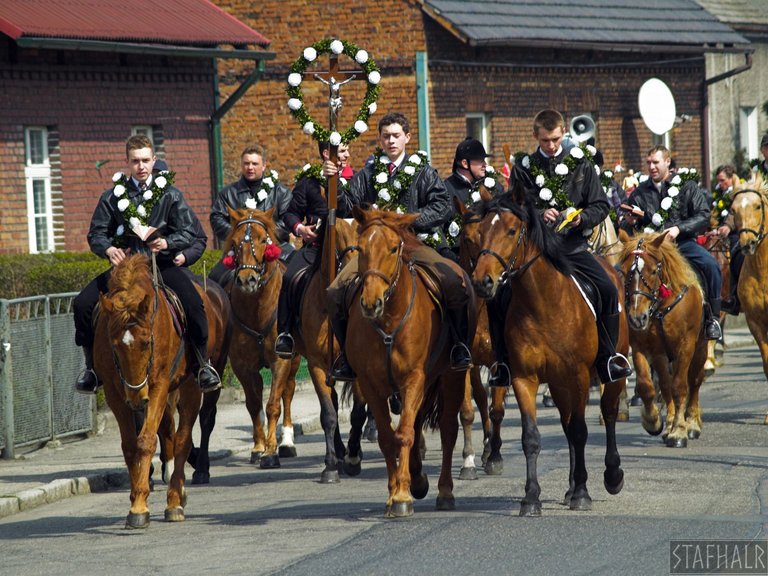
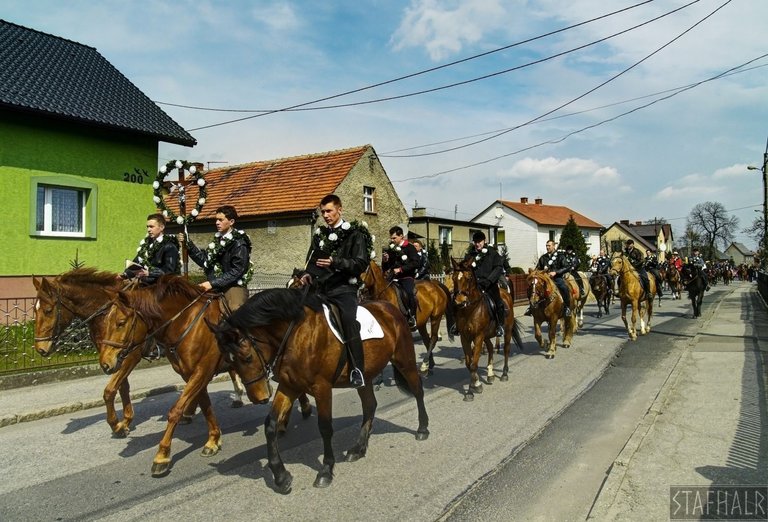
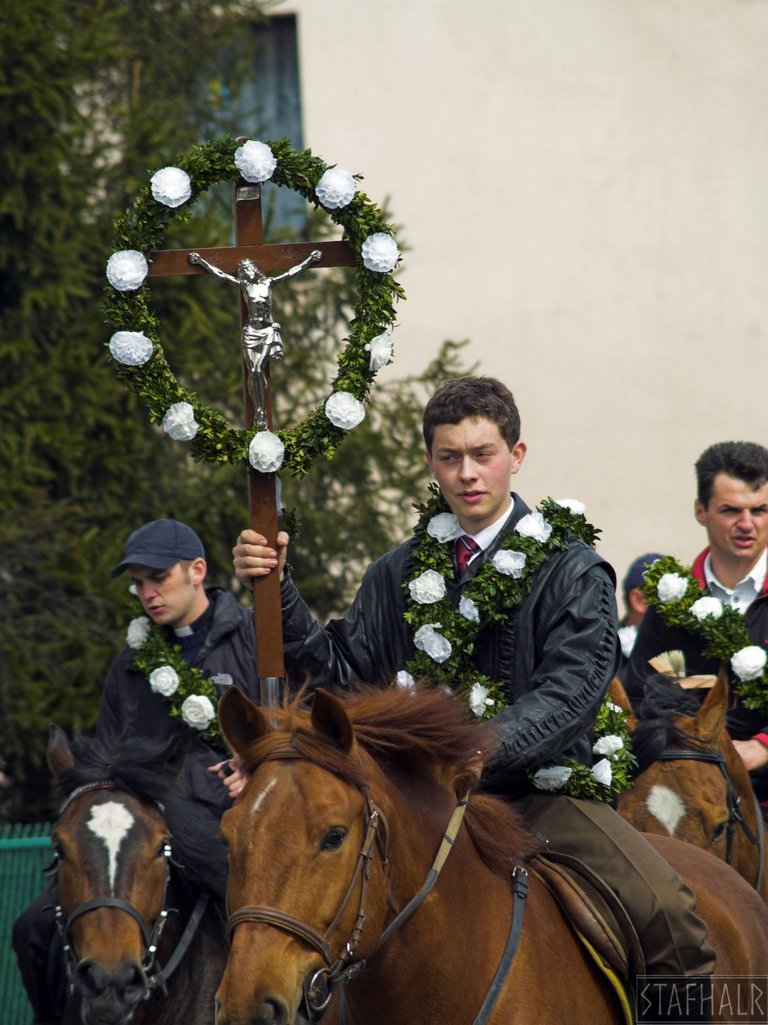
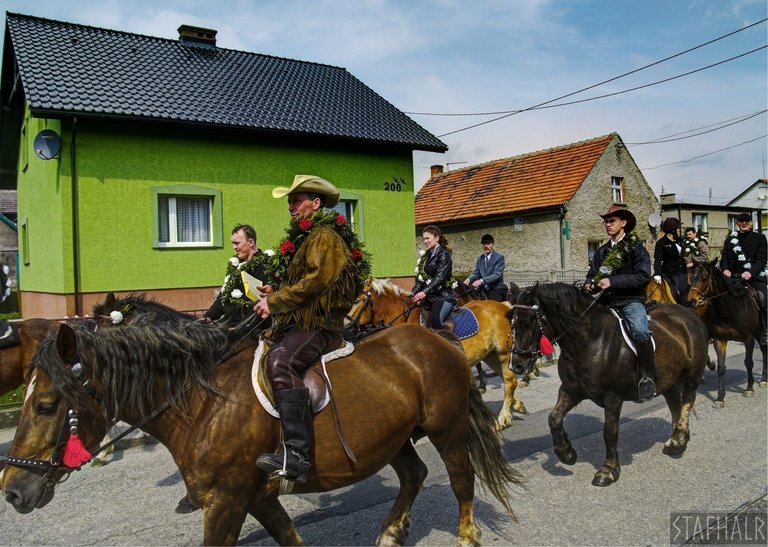
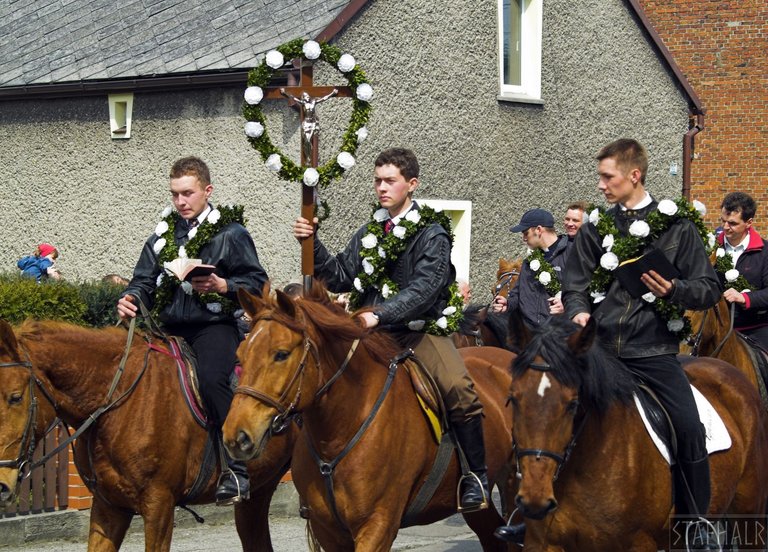
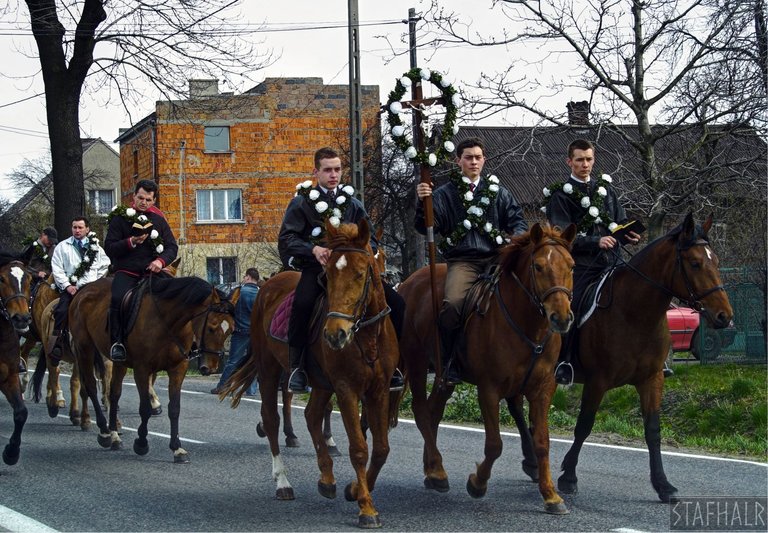
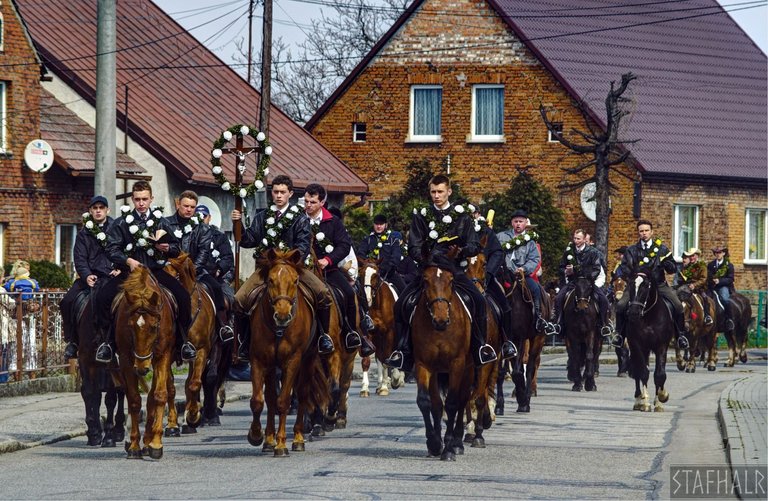
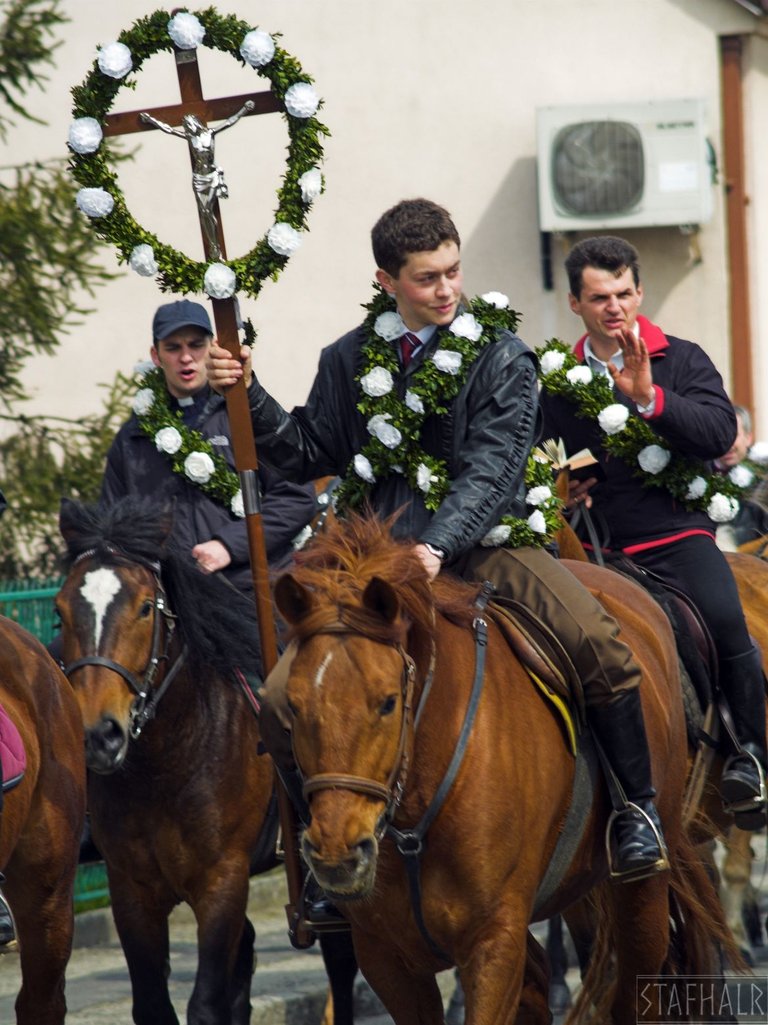
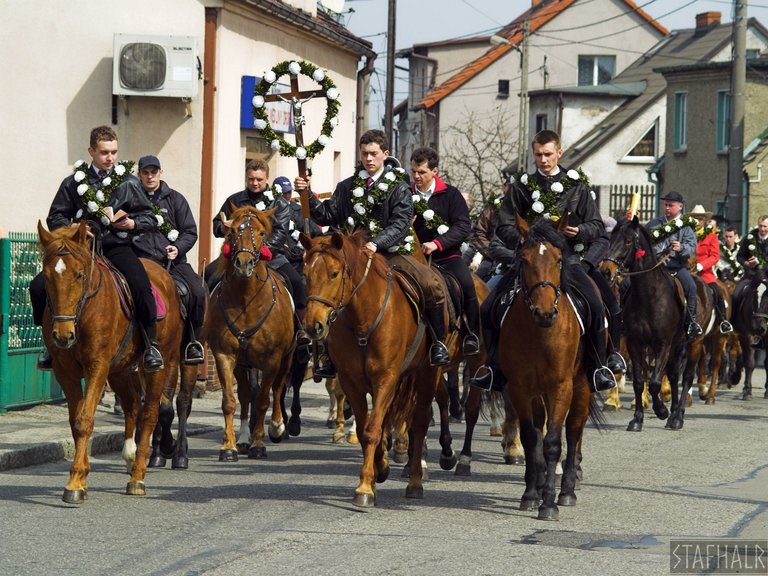
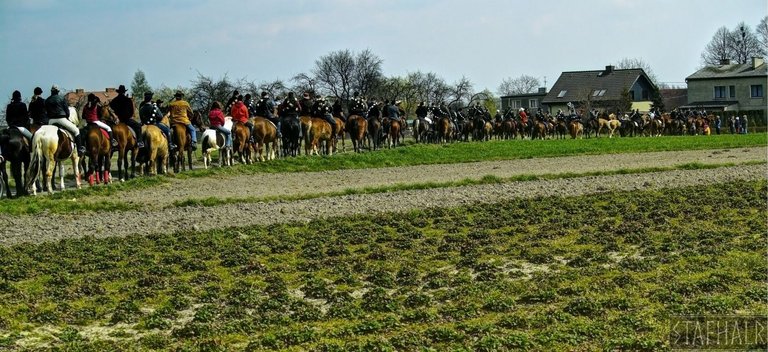
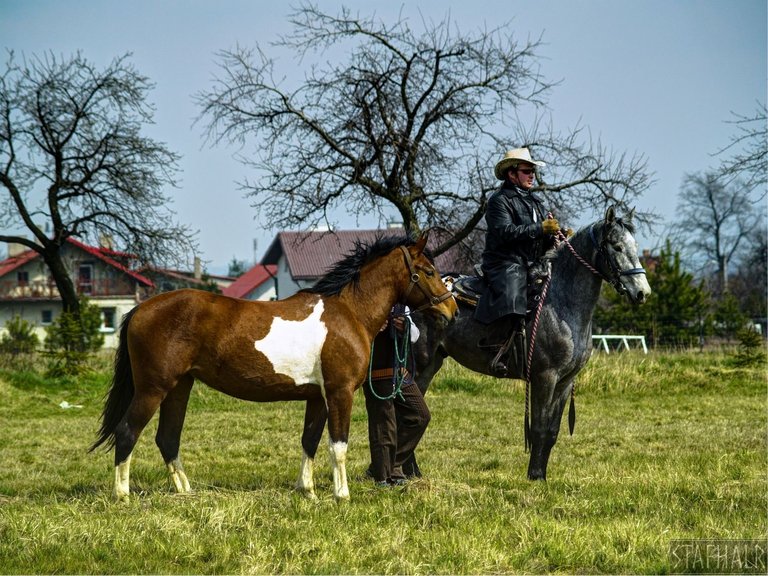
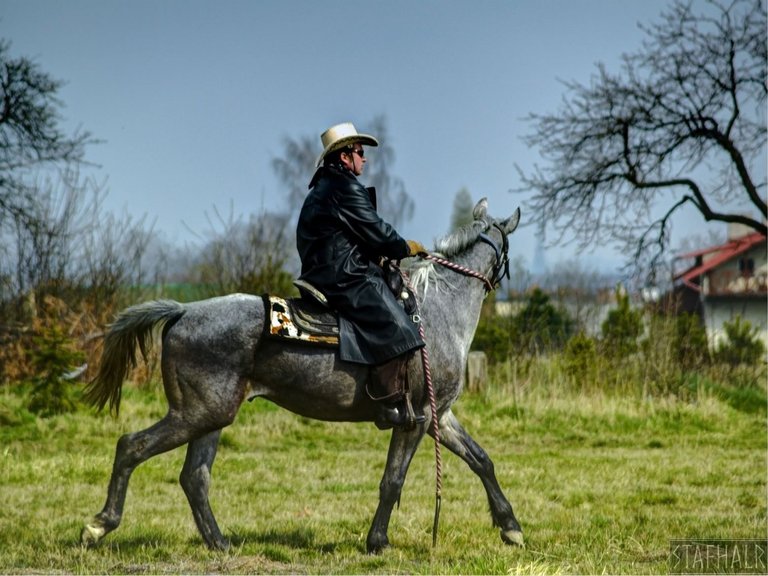
All photographs © Stafhalr 2007